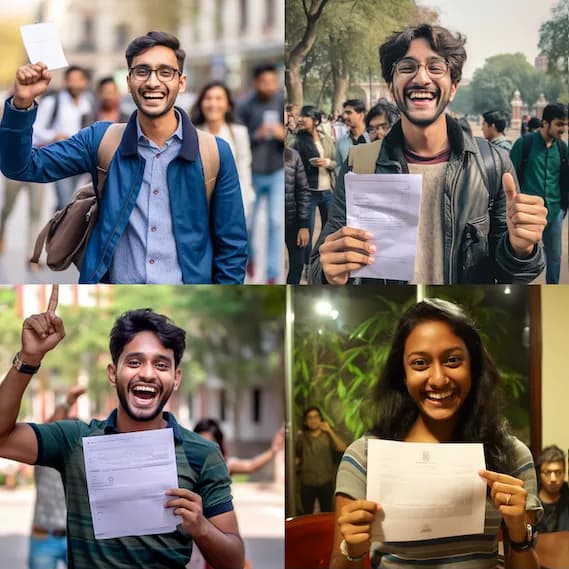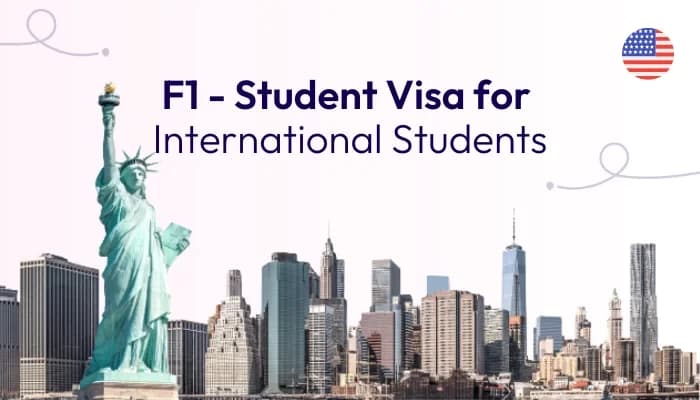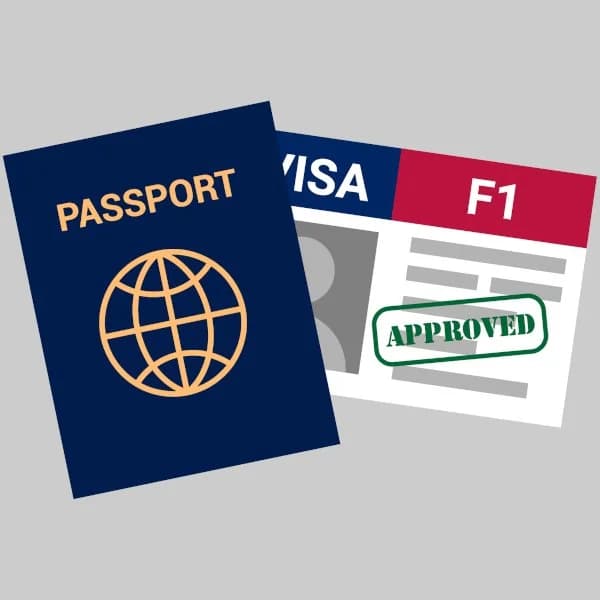Crafting a Perfect "Why Not Study at Home?" Answer for F1 Visa Interview

Key Highlights
- Be honest about your reasons for choosing to study in the US.
- Highlight the unique attributes of the US education system that are not available in your home country.
- Align the benefits of studying in the US with your academic and career goals.
- Provide clear, consistent answers that show your genuine intent and commitment to study abroad.
- Illustrate your intention to return to your home country after completing your studies.
Hello everyone! Today we’re talking about the quintessential F1 visa interview. Oh yes! You heard me right, the very interview that can open the golden gates of international education for you, the one that can set you on the path to studying in the USA.
In the arena of the US student visa interview, there's one question that tends to make applicants break into a cold sweat: "This course is provided in your home country? Why don't you want to study in your home country?"
Similar Questions:
- What are the advantages of studying this course in the US compared to your home country?
- What do you believe you can gain from studying in the US that you wouldn't get in your home country?
Sounds familiar? Of course, it does! We've all heard about it, haven't we? So, how do you respond to this seemingly simple yet confusing question? It's like being asked to choose between apples and oranges, except both fruits look, smell, and taste almost the same. So what's going to be your pick? And more importantly, how are you going to justify it?
This question, my friends, is not a trick one; rather, it's a test of your clarity and resolve towards your decision to study abroad. Hence, providing a well-articulated and compelling response is a must. Fear not, for I am here to guide you through the process of crafting a perfect answer to this deceptively tricky question.
Step 1: Understanding the Purpose Behind the Question
Imagine the visa officer is like a detective, with a magnifying glass in hand, keen to decode the mystery behind your choice to study in the US when you can do the same in your home country. Why are you looking to cross seas, face the challenges of a foreign land, and go through all the hoops when you could study in your comfort zone?
This question seeks to assess your genuine intent and commitment to study abroad, your clear understanding of the benefits you expect from studying in the US, and whether you plan to return to your home country after completing your studies.
Step 2: Highlight the Uniqueness of the US Education System
Once you understand what the officer is looking for, the next step is to frame your answer by emphasizing the unique attributes of the US education system that are not available in your home country. It could be the opportunity to receive a world-class education, exposure to cutting-edge research, the chance to work alongside top academics and professionals, or simply the multicultural environment that promotes holistic development.
Just remember, when we say "highlight," it doesn't mean reciting a monotonous list of benefits. You need to weave these aspects into a compelling narrative. It's like describing a gorgeous painting; you're not merely enumerating the colors but telling a story that these colors jointly narrate.
Step 3: Align Your Academic and Career Goals
While the attributes of the US education system might be your starting point, they should logically align with your academic and career goals. If you're applying for a master’s program in Artificial Intelligence, discuss how studying in the USA will provide you with the right mix of theoretical knowledge and practical exposure, keeping you abreast of the rapid advancements in the field. It’s like choosing a sports coach. Why would you go for the neighborhood fitness trainer when you have the chance to train with an Olympic coach?
Step 4: Be Honest and Be Yourself
Lastly, be honest. Be yourself. The visa officers are trained to sense rehearsed or dishonest answers. Your response should resonate with your passion, dreams, and ambitions. They should feel like they're looking into a mirror that reflects your academic aspirations and not staring at a scripted façade.
Now that you know the secret recipe for answering this critical F1 visa interview question, let’s check out three sample answers. Remember, these are not "copy-paste" solutions, but serve to inspire your own unique, heartfelt response.
Sample Answer 1
"Yes, the course I am interested in is indeed available in my home country. However, I am particularly attracted to the U.S. education system's emphasis on practical knowledge and hands-on experience. Back home, our education system, while strong in its theoretical grounding, often lacks this practical element. It's akin to learning how to cook by just reading a recipe book without ever stepping into the kitchen.
In contrast, the US education system encourages students to apply their theoretical knowledge in real-world scenarios. As an aspiring software engineer, I feel it's essential to not only understand the coding principles but also apply them to solve real-life problems. The opportunity to study in the US, where I would have access to advanced labs, internships, and industry collaborations, would significantly enhance my practical skills.
I believe that this hands-on approach will give me an edge and prepare me better for a successful career in the technology field. Upon completion of my studies, I aim to bring back this acquired knowledge and experience to contribute to my country's burgeoning tech industry."
Reasoning:
This answer tactfully points out a limitation of the home country's education system—the lack of practical application—without outrightly criticizing it. It effectively contrasts this with the US education system's strength in providing practical knowledge and hands-on experience, which is highly relevant for the applicant's field of study (software engineering). The response cleverly uses a cooking analogy to illustrate the point, making it relatable and easy to understand. It also assures the interviewer of the applicant's intention to return home and contribute to the local tech industry, indicating a clear long-term plan.
Sample Answer 2
"Yes, the Business Administration course is available in my home country, but the global perspective and experiential learning that US B-schools offer are unmatched. I believe that in today's interconnected world, having a global business perspective is vital. The multicultural environment in US universities, the diversity in the student community, and the opportunity to work on real-world business problems through internships will help me understand global business dynamics. My goal is to use this knowledge to contribute to the growth of my family's business back home."
Reasoning:
Here, the applicant emphasizes the global perspective and experiential learning that US Business-schools provide. It demonstrates the applicant's appreciation for the diversity and practical experiences offered by US universities, elements that are essential for a career in business. The response smartly aligns these advantages with the applicant's personal goal of expanding their family's business, indicating a clear reason for studying in the US. It also assures the interviewer of the applicant's intention to return home after their studies.
Sample Answer 3
"Yes, its true, Film Studies is available in my home country, but studying it in the US is like learning painting in Picasso's studio. US universities, especially in Hollywood, offer an advanced curriculum and expose students to international projects, guest lectures, and internships. These opportunities, coupled with a multicultural setting, would greatly enrich my understanding of global cinema. Post studies, I plan to return home and contribute to the diversification of our local film industry."
Reasoning:
The response points out the limitations of Film Studies in the applicant's home country and underscores the unparalleled opportunities in the US, effectively leveraging the "Picasso's studio" analogy. By emphasizing the multicultural experience and practical exposure gained in the US, the applicant aligns their education with their career goals. The statement of intent to contribute to their local film industry post-studies assures the visa officer of the applicant's plan to return home.
So, there you have it, folks! Just remember to showcase the US education system’s unique strengths, tie them in with your academic and career goals, and voila! You've got yourself a convincing answer. Just like a well-prepared dish, the right mix of honesty, clarity, and personal aspiration can turn your F1 visa interview into a recipe for success.
To all you future achievers out there, remember that this is your journey. Own it, embrace it, and let your voice be heard. Good luck with your F1 visa interview!
Have Questions About This Topic?
Join our community to get personalized advice and share experiences with others going through similar visa processes.





